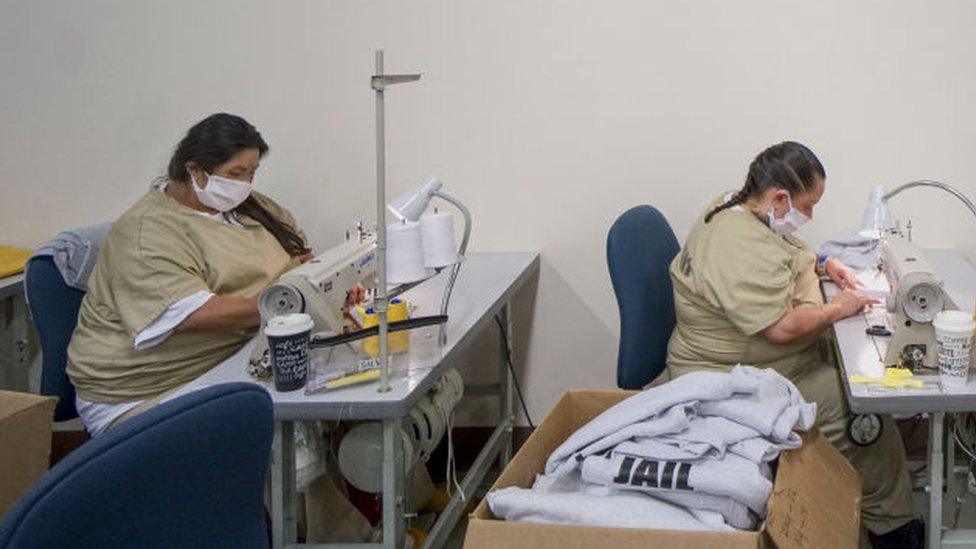Colorado elections: Joe O'Dea, Lauren Boebert and the rifts dividing Republicans
- Published
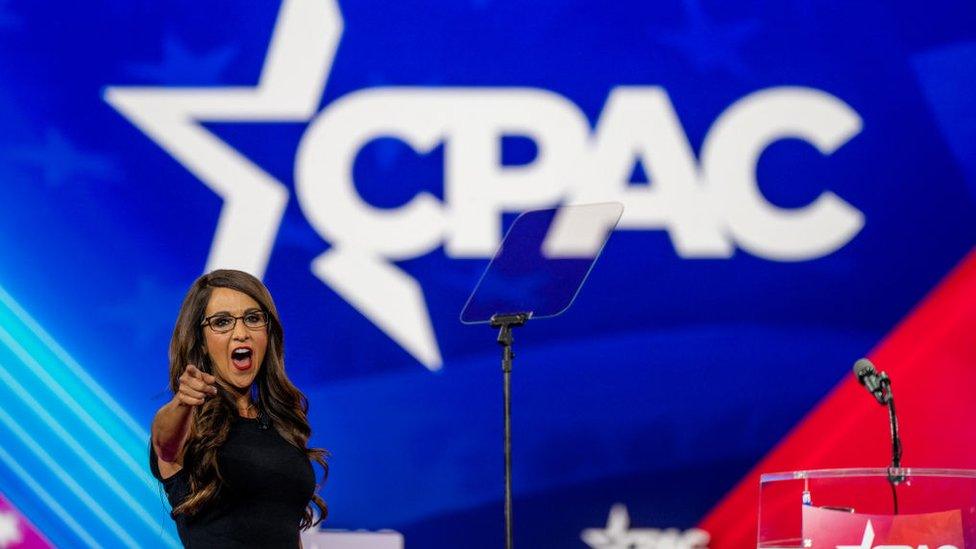
Lauren Boebert has tied herself tightly to the politics of Donald Trump
In a state governed by Democrats, a far-right candidate is about to win another term to US Congress - while her moderate Republican colleague is set to lose his bid for Senate. The races in Colorado are a capsule of the rifts shaping national politics.

A few hours' drive out of Denver, the capital city in the centre of Colorado, an enormous sign can be seen from the side of the highway: white background, pink-and-black font, pasted on to an old, hulking trailer.
"This Is Boebert Country," it reads.
"Boebert" refers to Lauren Boebert.
The 35-year-old Republican represents Colorado's third congressional district, a vast stretch of land that spans the entire western half of the state.
Though she has not passed a single piece of legislation in her first term in office, Ms Boebert has emerged as one of the most high-profile Republican newcomers in Congress owing to her unabashed Trumpism.
She picked routine fights with Democratic colleagues - labelling one group the "Jihad Squad" - and falsely claimed that liberals had legalised "knowingly spreading HIV". A staunch defender of gun rights, she vowed to bring her handgun to the Capitol. The 2021 Boebert family Christmas card featured a photo of the congresswoman and her three young sons, all wielding rifles.
That maverick brand of Republicanism stands in stark contrast to the party's Senate candidate, Joe O'Dea, 60.
Unlike Ms Boebert, Mr O'Dea supports abortion access and immigration reforms, and said he would actively campaign against former President Donald Trump if he were to run again.
The two political newcomers - Ms Boebert and Mr O'Dea - offer a picture of a Republican Party at war with itself. And in Colorado ahead of the election, it is Ms Boebert's party in control: she is on course to win, while Mr O'Dea is expected to lose.
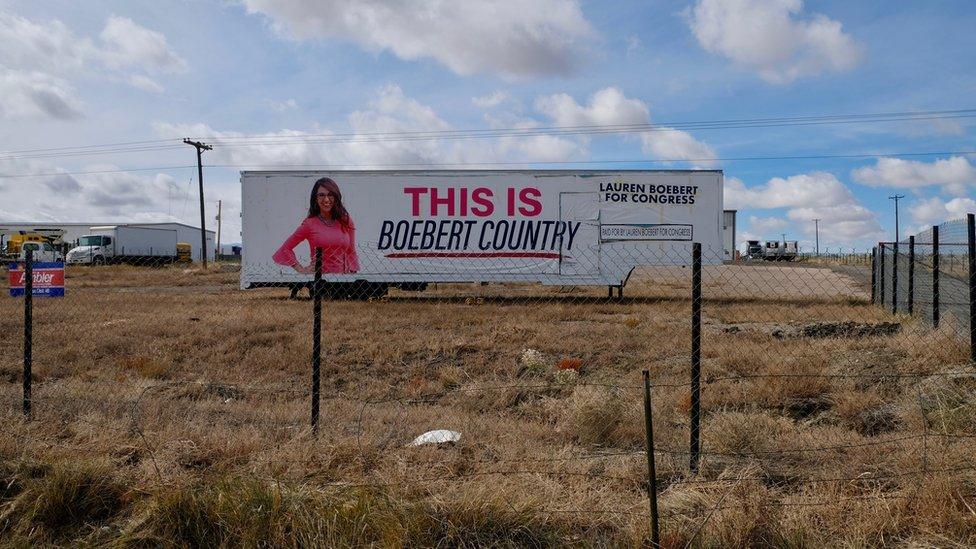
Ms Boebert, an arch-Trump supporter, looks likely to sail to victory in Colorado
Some political fissures in Colorado can be understood through its geography.
As a candidate running for state-wide office, Mr O'Dea has had to appeal to the political centre, while Ms Boebert has a much more contained constituency.
Almost all of "Boebert country", including cities like Durango, Grand Junction and Ms Boebert's home of Rifle, are on the west side of the so-called 'Great Divide' - a literal fracture in the earth that forms the Rocky Mountains.
It is mostly rural, mostly white, and mostly Republican. Poverty rates are nearly double that of the state as a whole.
This area, called the Western Slope, is effectively cleaved off from the rest of Colorado - the ice-capped mountains acting as both an ideological and physical barrier.
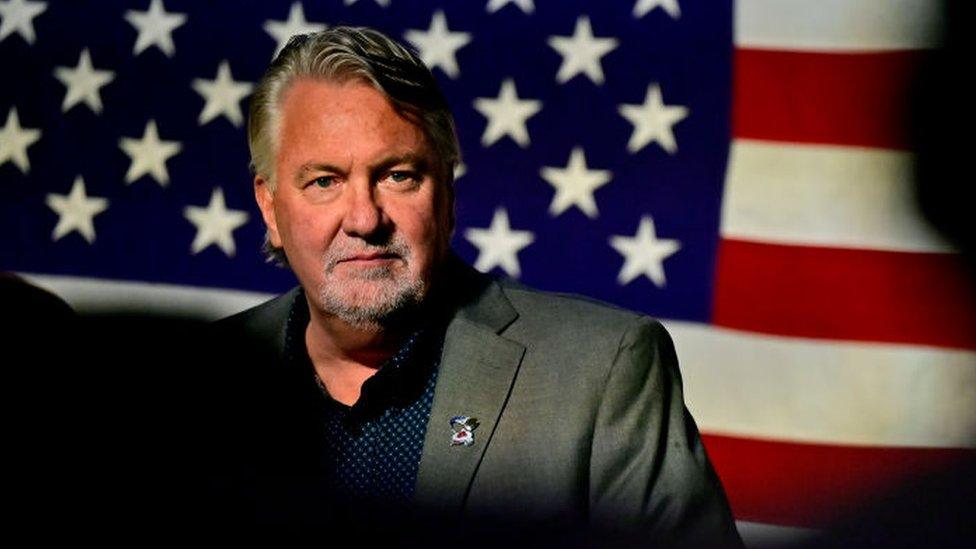
Joe O'Dea is a construction company boss and first-time candidate for office
"Western Slope" is also something of a shorthand for blue collar, pro-gun, anti-elitism, existing in opposition to liberal havens like Boulder and Denver, where a Democrat sits in the governor's mansion.
"The population centres, the economic centres, the political centres are all on the other side of the mountains," said Justin Gollob, a politics professor at Colorado Mesa University.
People who live in the West are attracted to its isolation, Mr Gollob said. But it has also bred resentment, a feeling of being walked over and ignored by the Democrats in charge in Denver and Washington.
"I think it's an attitude that, you know, we live in the civilised world and you guys are a bunch of rednecks," said Kevin McCarney, an insurance advisor and local Republican party chairman.
On the trail, Ms Boebert - who has spoken of growing up on government benefits - speaks directly to the anger and alienation bubbling through the Western Slope, railing against "radical" Democrats, who are "destroying America".
"She's down to earth. I can relate to her, I can relate to her background," said Jennifer Wilcox, who runs a non-profit in the district for women living in poverty.
In Colorado last week, many residents also expressed concern and disbelief that President Biden would commit billions to student loan forgiveness while blue-collar families struggle amid soaring inflation.
"Only about one-third of adults in this country have a bachelor's degree. It's a little bit less than that in [the third district]," said Adam Frisch, the Democrat running against Ms Boebert. "This is why the Democrats have lost support in rural America… it's the ultimate in tone deaf."
An analysis of national election results by NBC News found that while Bill Clinton won more than 50% of all rural counties in 1996, Barack Obama won just half of that in 2008. Joe Biden fared even worse, winning less than 5% in 2020.

Mr Frisch wears his party affiliation lightly, careful to distance himself from the left-wing of the party. "I spend a lot of time letting people know I don't have blue horns growing out of my head," he said.
Some Democrats, like Colorado's sitting governor or Mr O'Dea's opponent, Senator Michael Bennet, have found a workaround for the lack of rural support, relying on strong backing from populous urban centres and then appealing to suburban voters - a bloc courted by both parties.
It was the registered Republicans in suburbia who helped Mr O'Dea eke out a victory over his far-right opponent in the primaries.
His win was "an exception to the rule of the Republican party right now", said Gunner Ramer, political director of the Republican Accountability Project, an anti-Trump Republican group. "Across the country Donald Trump, election deniers and anti-establishment candidates have taken over the Republican party at all levels of government."
But the Republican nominee will probably come up short next week, lacking the urban popularity offered to Democrats as well as populist fervour for "Maga" stars. He is five points behind in the Senate race, according to an average of recent polls.
In effect, he'll be squeezed from both sides while Ms Boebert sails to re-election.


- Published3 November 2022
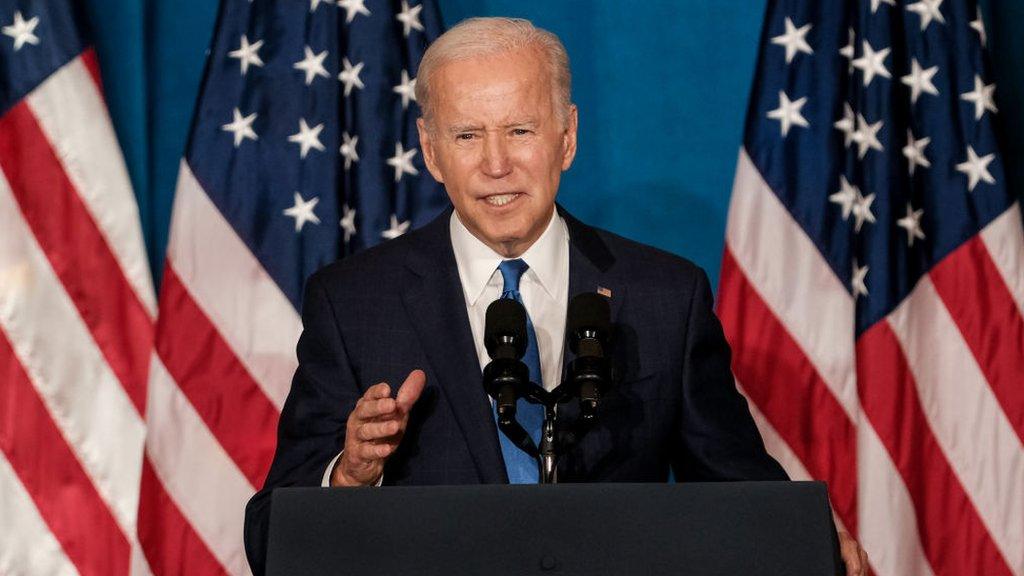
- Published8 November 2022
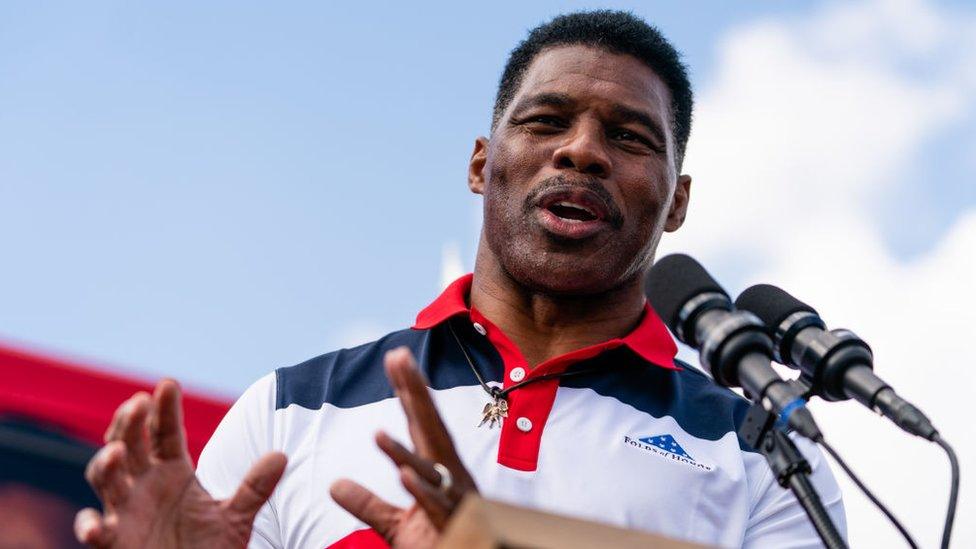
- Published3 November 2022
